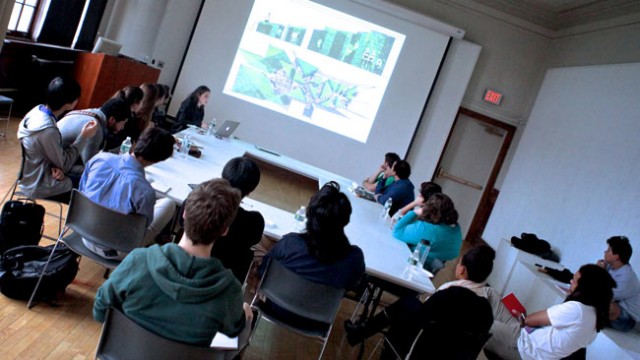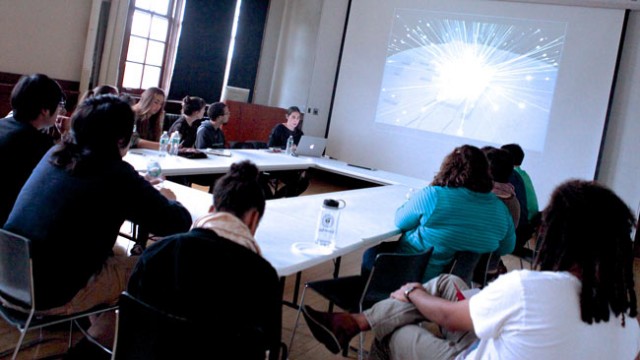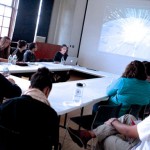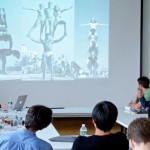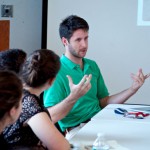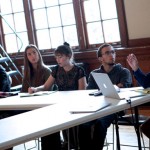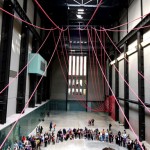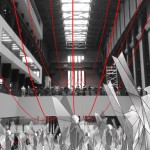[Positions Series] Constructing Audiences
DISCUSSION: Saturday, Oct 4th, Greene Gallery, 1:30pm.
“CONSTRUCTING AUDIENCES”
On Saturday, October 4, 2014, the Rensselaer Positions Series second event, “Constructing Audiences” took place in the Greene Gallery, with Brooklyn-based architect Gia Wolff as guest speaker. The topic “Constructing Audiences” examined pertinent ways in which architects produce and engage audiences of today through contemporary design ideas and approaches.
The event posed the following questions:
How do architects, curators, and historians construct and engage people in new and instrumental ways as a means to advance the field and engage culture? What are the imperatives of constructing audiences and its role in how said intellectuals establish their positions on matters regarding the field and their respective practices?
Elias Jackson Darham (M.Arch I) expressed his position on the role of the designer as an advocate for public space through mediation, as manifested in the continual design process of the Sagrada Família (a project on which Darham worked as part of the Schematic Design Team with executive architect Mark Burry). Darham suggested that “We, as designers, must act both as provocateur and advocator of conflicting cultures, thereby necessitating our meditative role.” He focused on the approaches of those who are currently at work on the basilica in order to extrapolate Antoni Gaudí’s original intentions.
In his presentation titled, “Ruptured Audiences,” Miguel Lantigua-Inoa (B.Arch) focused on the relationship between interiority and exteriority in the making of audiences, notably, the growing dichotomy between the two conditions within contemporary architecture. Building off of Rem Koolhaas’ claim that today’s society has become too conformable with stability, with a preference for predictable, mundane outcomes as opposed to an openness for productive, often risky, challenges, Lantigua-Inoa argued for the coexistence of both worldviews as a necessary supplement for the latter. He elaborated on his notion of a “productive disturbance” from the exterior to interiors with reference to Adolf Loos’ Haus Müller and Looshaus. As a celebration and criticism of the Austrian architect’s work, Lantigua-Inoa hybridized Loos’ interest in distinct exterior/interior expressions with the contemporary reemergence of ornament, treating both conditions as distinct yet relatable sites of engagement.
Guest speaker Gia Wolff concluded the presentation portion of the afternoon with her take on what it means to construct audiences through the perspective of the user unto architecture, namely, the human body’s potential to influence space. Building upon her graduate thesis out at the Harvard GSD, Wolff expanded on said reciprocal relationships between bodies and architecture as explored in her earlier projects. She raised the question: How does one qualify experience in architecture, from bodies in space as a kind of engagement, to architecture becoming a form of audience? Wolff concluded her presentation with reference to her Canopy of Ropes project, as well as her Wheelwright Prize research on parade floats titled, “Floating City: The Community-Based Architecture of Parade Floats,” in which temporality, mobility, and spectacle play a critical role in how said objects engage people and vice versa.
Gia Wolff is an architectural designer who has been compelled by the workings of performance and its use of space and objects to convey narrative, form, and emotion. She is interested in architecture that embodies a reciprocal relationship between the user and the built environment and questions the performative aspects of the discipline. Her requires users to actively question how they, as humans, relate to architecture in both time and scale. For more information about her work, see www.giawolff.com.
//
